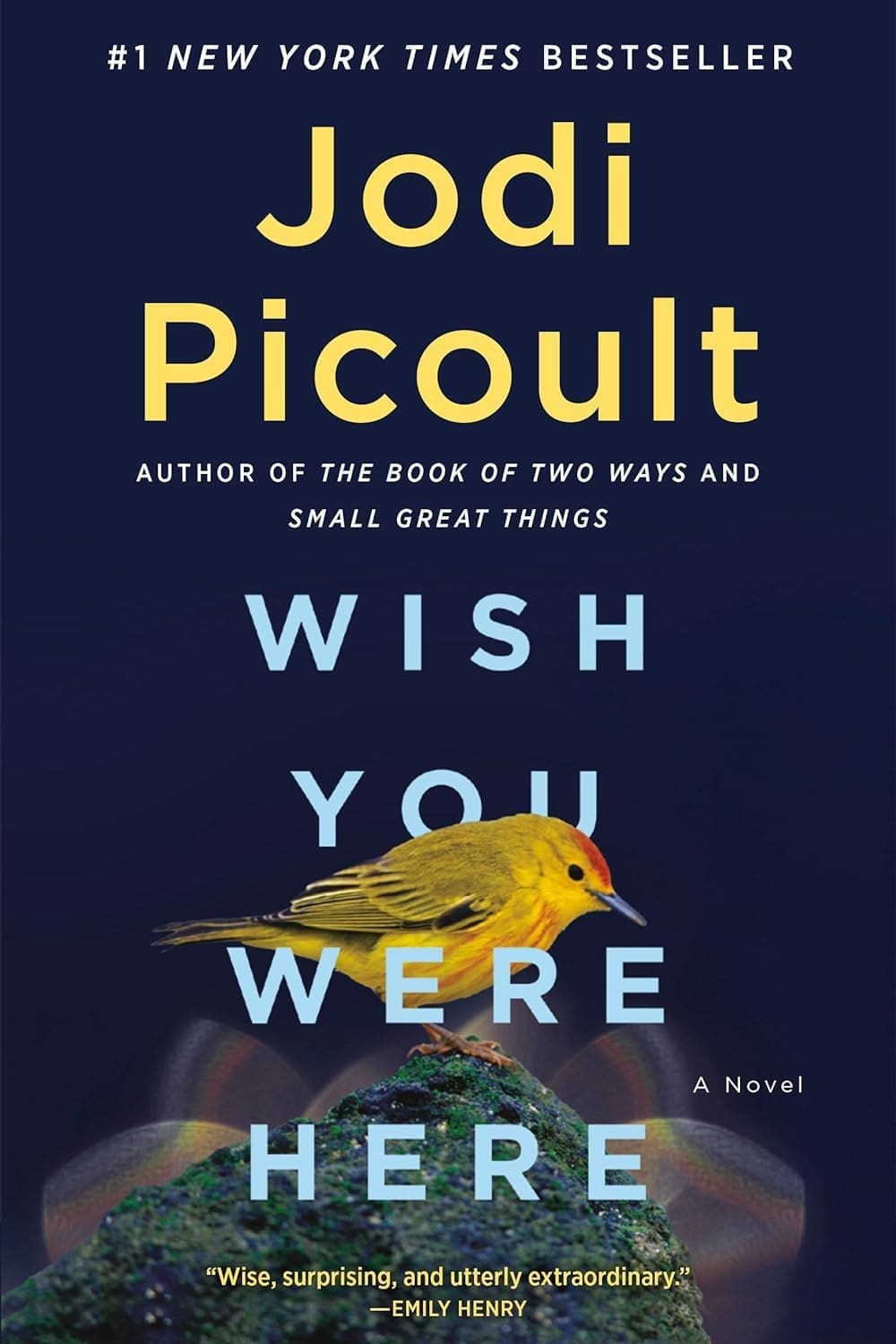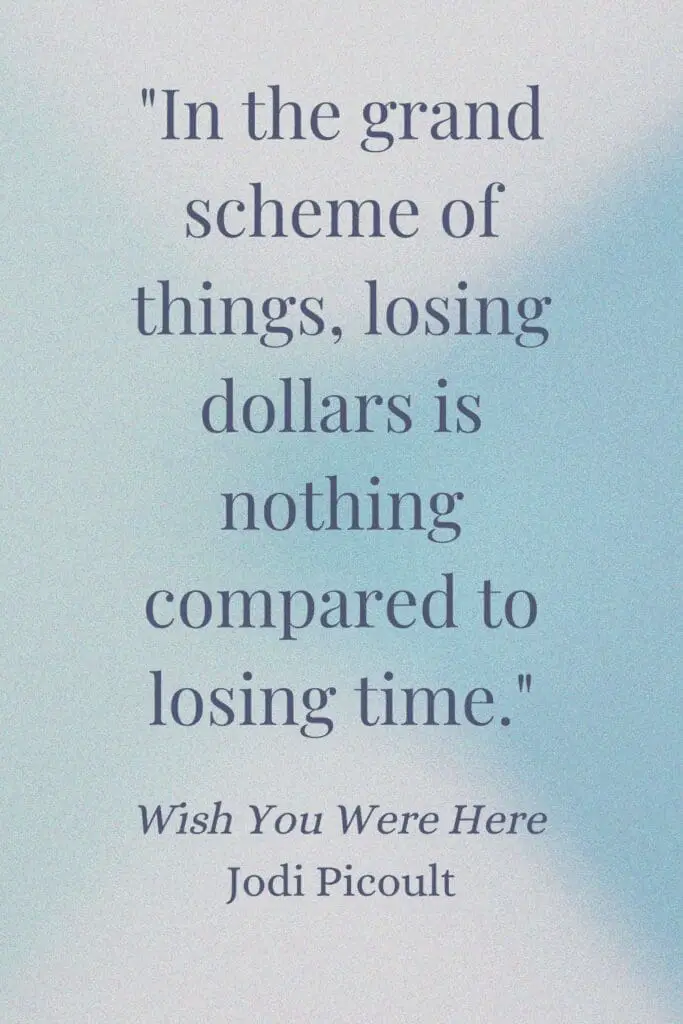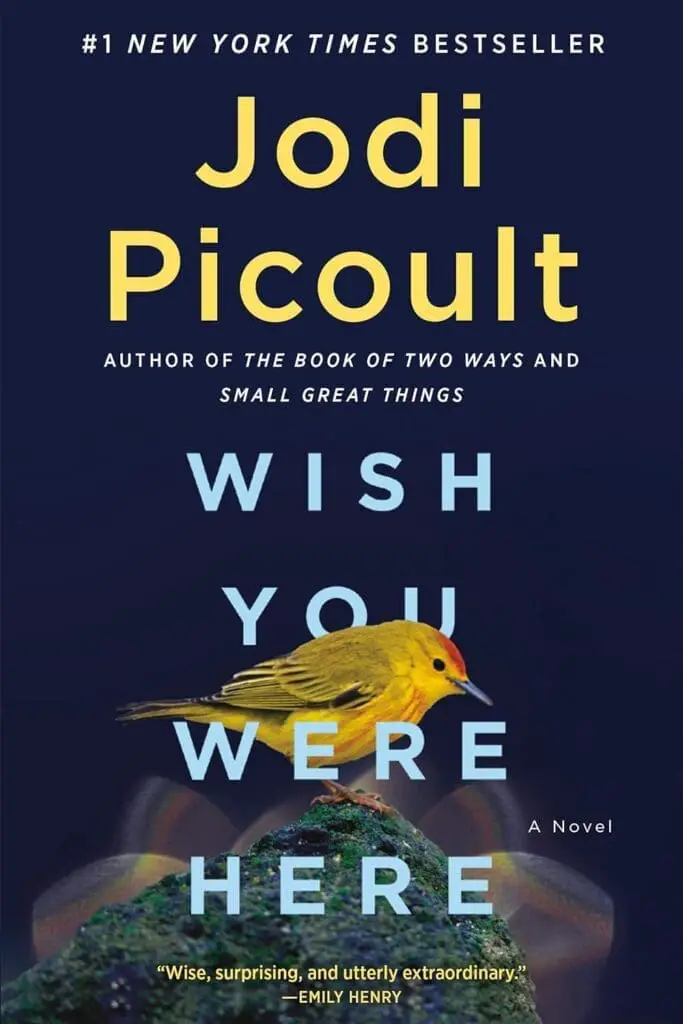Wish You Were Here was my first Jodi Picoult book to ever read, and based on how much I enjoyed the plot (plus the fact that she’s written 28 novels) maybe I should delve into a few more.

This Post May Contain Affiliate Links. If You Click Them, I Could Earn A Small Commission At No Extra Cost To You. Thank You!
Wish You were Here
While I don’t want to give away too much about the book, it’s safe to reveal that it’s set during the onset of the 2020 Covid Pandemic, which can be a little triggering for some, particularly if you lost someone due to covid.
While I fully remember isolating during that timeframe and disinfecting practically everything that came into my house, connecting with friends and family over shaky Zoom sessions, there’s also a part of my brain that has trouble registering that it was all real. That it all happened. Memory and our brain’s pathways to processing a new reality are mysterious to me, and while I know we technically know how the mind functions, there’s still much that we don’t know.
Even though Wish You Were Here is set during the pandemic, that’s not really what the book is about. For me, the book was about choice and our capacity for change, even when we don’t anticipate it coming. I hope you enjoy these favorite quotes from Wish You Were Here by Jodi Picoult, and if you’re interested in reading the book, click here.
16 Wish You Were Here Quotes by Jodi Picoult (with page numbers)
1. “The whole point of traveling with someone from home is to remind you where you came from, to have a reason to leave when you begin to lose yourself in the lights of Paris or the majesty of a safari and think, What if I just stay?” Chapter 2, pg. 35
2. “That was how I learned that the world changes between heartbeats; that life is never an absolute, but always a wager.” Chapter 3, pg. 69
3. “Inside was my father’s wallet, his reading glasses, his wedding ring. Identity, insight, heart: the only things we leave behind.” Chapter 3, pg. 70
4. “There is a profound difference between knowing your situation is temporary and not knowing what’s coming next.” Chapter 3, pg. 74
5. “Tibetan monks spend months making sand mandalas and then they brush them away and throw them into a river.” She turns, pained. “Why?” “Because it’s not permanent and that’s the point.” Chapter 4, pg. 93
6. “The point is, if someone abandons you, it may be less about you and more about them.” Chapter 4, pg. 96
7. “There are two ways of looking at walls. Either they are built to keep people you fear out or they are built to keep people you love in. Either way, you create a divide.” Chapter 4, pg. 96
8. “There are endless ways to leave your mark on the world—cutting, carving, art. Maybe all of them do require payment in the form of a piece of yourself—your flesh, your strength, your soul.” Chapter 4, pg. 98
9. “I think that art goes both ways. Sometimes you have to have the perspective of distance. And sometimes, you cannot tell what you’re looking at until it’s right under your nose.” Chapter 4, pg. 99

10. “In the grand scheme of things, losing dollars is nothing compared to losing time.” Chapter 4, pg. 104
11. “I learned the hard way that you shouldn’t stay with someone because of your past together—what matters more is if you want the same things in the future.” Chapter 6, pg. 146
12. “Busy is just a euphemism for being so focused on what you don’t have that you never notice what you do. It’s a defense mechanism. Because if you stop hustling—if you pause—you start wondering why you ever thought you wanted all those things.” Chapter 6, pg. 172
13. “It’s hard to blame someone for breaking the law when all your choices have been taken away from you. Nobody’s all good or all bad. They just get painted that way.” Chapter 14, pg. 272
14. “Trying to figure out what happened to me isn’t important. It’s what I do with what I’ve learned that counts.” Chapter 14, pg. 282
15. “You can’t plan your life, Finn,” I say quietly. “Because then you have a plan. Not a life.” Chapter 18, pg. 304

16. “You may not be able to choose your reality. But you can change it.” Chapter 18, pg. 304
Ready to Read?
Related Posts:

